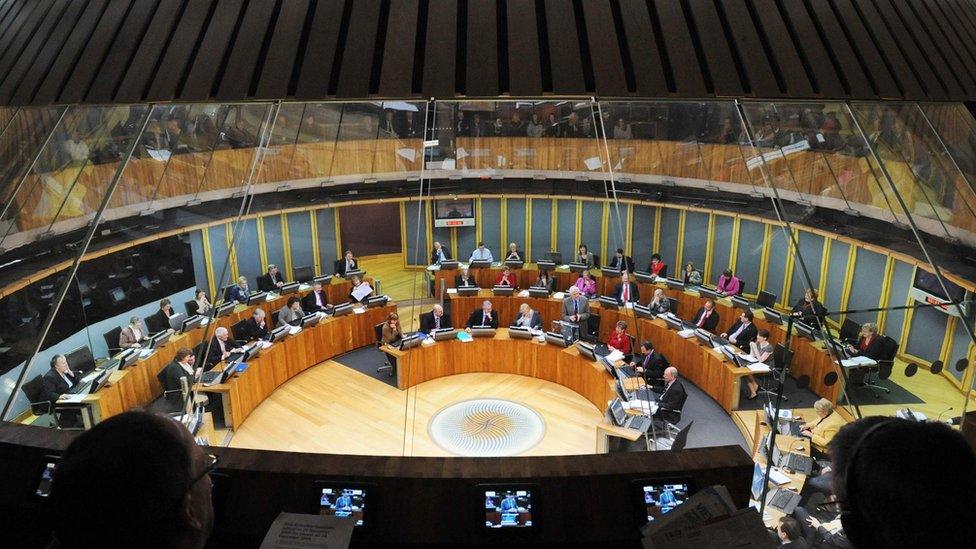Wales Bill could sow seeds of discord, warn peers
- Published

A new law that will change how devolution works in Wales could "sow the seeds" of discord between the Welsh and UK governments, a House of Lords committee has warned.
The Wales Bill promises new powers for Wales over energy, elections and more.
But peers warned the bill could lead to "repeated" referrals to the Supreme Court of laws made in the Senedd.
The UK government's Wales Office has been approached for comment.
In a report, peers sitting on the delegated powers and regulatory reform committee said the bill's "failure to spell out more clearly" the boundaries of the assembly's law-making abilities could lead to referrals to the Supreme Court.
It said this "could sow the seeds of future discord between the assembly and Welsh ministers on the one hand and the UK Parliament and government on the other".
It was unclear, the report said, whether the combined effect of changes in the bill "will result in the assembly gaining legislative competence in new areas, or losing competence in areas where it currently has competence".

The Wales Bill is being considered by the House of Lords as part of the process of the law entering the statute books.
It will establish a new system for how the assembly makes laws, defining what is held back to Westminster set out in a list of reservations.
Current law states what the power of AMs are but not what is held back.
Previous rows over what the assembly can make law on has led to the Supreme Court deciding on the scope of AMs' legislative powers.
The Wales Bill aims to provide a clearer separation of powers between what is devolved and what is not.
Ministers had revised the bill from a previous draft following criticism that it would reduce the assembly's powers, but AMs have warned that even the revised version threatens a roll-back in capabilities.
The House of Lords committee report said there was an "absence of an obvious rationale" for the inclusion of certain reservations.
- Published10 October 2016

- Published20 October 2015

- Published29 February 2016
